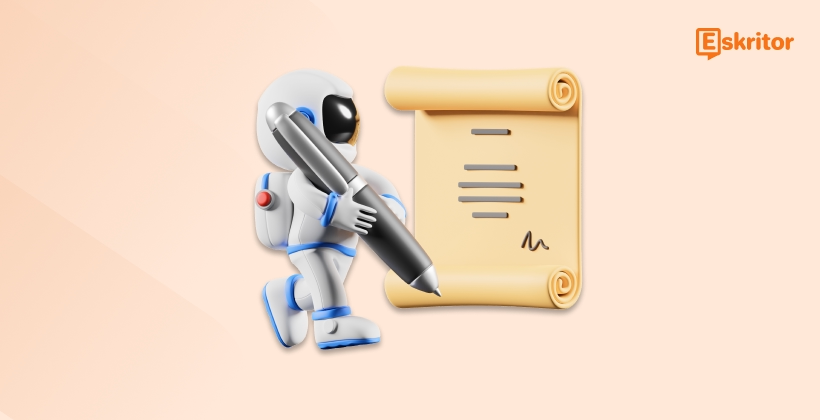How AI Writers Are Transforming Content Creation
How AI Writers Are Transforming Content Creation
Blog Article
Why AI Editing is Revolutionizing Proofreading
As synthetic intelligence (AI) evolves, it remains to revolutionize how we strategy contemporary editing practices. From grammar modification instruments to sophisticated content era programs, AI writer is reshaping the way writers, publishers, and designers refine their work. That website examines the position AI represents in modern editing and the influence it's across industries.

AI-Powered Resources Primary the Demand
AI-powered methods have become an crucial section of editing workflows. Pc software fueled by normal language control (NLP) and equipment learning can do projects like grammar checks, stylistic recommendations, and sentence restructuring with incredible rate and accuracy.
As an example, AI-based grammar checkers can recognize mistakes that the eye may ignore, such as for instance subject-verb deal dilemmas or dropped modifiers. Similarly, model improvements developed by AI ensure that tone and flow align with the intended market, that will be priceless for skilled editors.
These tools aren't just restricted to standard syntax corrections. They are designed for increasing readability, transforming inactive voice to active voice, and also paraphrasing whole paragraphs without adjusting the meaning.
Effectiveness Matches Time Savings
Studies reveal that the utilization of AI instruments can lower modifying time by as much as 30%. As opposed to poring over every word personally, writers may focus their efforts on innovative and strategic elements of content. That shift allows specialists to manage larger sizes of text in shorter times, which will be especially useful for industries like writing and digital marketing.
Moreover, predictive AI features can spotlight repeating problems, helping authors enhance their abilities around time. For businesses, this equals fewer resources used on revisions and more finished outputs right from the start.
Enhancing Accessibility and Globalization
AI's role in modern modifying stretches beyond efficiency. Advanced interpretation and localization methods let makers to change material seamlessly for world wide readers, deteriorating language barriers with precision. That technology assures that exactly the same information can resonate with countries worldwide while maintaining its authenticity.
AI also increases inclusivity standards by increasing accessibility in content. Like, calculations can recognize possibly non-inclusive language and suggest alternatives. That capability allows authors to refine writing therefore it resonates with varied audiences.

Striking a Stability Between AI and Human Creativity
While AI excels in rate and accuracy, it doesn't replace individual editors. Machines usually lack the capacity to read nuance, feeling, or cultural context fully. The best system mixes AI's efficiency with individual imagination and insight, causing truly excellent work.
By leveraging these technologies in contemporary editing techniques, designers and authors equally can produce supreme quality content that aligns with the fast-paced demands of today's digital world. AI could be the future of editing, however the human feel will be essential for storytelling and connection. Report this page